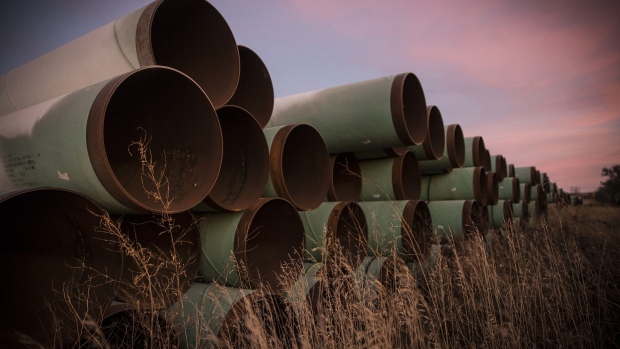Jul 30, 2020
TC sees path for Keystone XL work despite court setback
, Bloomberg News

TC Energy Corp. is looking for a way to start construction on its long-delayed Keystone XL oil pipeline despite a recent U.S. Supreme Court ruling that quashed authorization to lay pipe across streams and rivers.
The Canadian company plans to “pursue other permitting means to gain regulatory authorization to construct the pipeline across wetlands and waterbodies,” it said Thursday in its second-quarter earnings statement.
The move comes after the top U.S. court earlier this month left in force part of a lower court’s order that blocked TC’s utilization of a key, nationwide authorization that the U.S. Army Corps of Engineers uses to approve water crossings.
Instead, the company will now work with the Army Corps to obtain individual permits for crossings while at the same time focusing this year’s construction work on areas where it already has approvals in hand, Chief Executive Officer Russ Girling said during the company’s second-quarter call.
The court’s decision had threatened to delay almost all work on Keystone XL in the U.S. until 2021.
An earlier start to work on Keystone XL would be a boon for the Canadian oil-sands industry, which has been hampered for years by a shortage of pipeline capacity. It would also be a relief for the government of Alberta, which has invested US$1.1 billion in the project and provided it with a US$4.2 billion loan guarantee.
The line would help carry 830,000 barrels of crude a day on a 1,200-mile, (1,900-kilometer) route from the Alberta oil hub of Hardisty to Steele City, Nebraska. From there, the oil would travel to U.S. Gulf Coast refineries that process heavy oil-sands crude.
On Wednesday, President Donald Trump issued a new permit for TC’s existing Keystone system, allowing the company to raise the volume it ships on the line to 760,000 barrels a day from 590,000 under a previous presidential permit.






